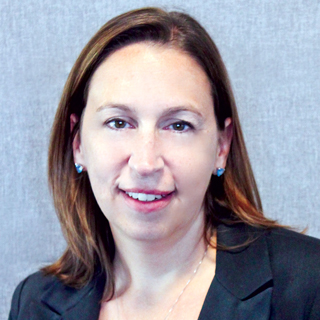
“And as I sat there, I realized that the questions intersecting life, death, and meaning—questions that all people face at some point — usually arise in a medical context.”
This is one of the central realizations from the 2016 bestseller, “When Breath Becomes Air” — the memoir of neurosurgeon Paul Kalanithi, MD, who died last year following a diagnosis with stage IV metastatic lung cancer. I suspect many of us have had a moment in our careers when this realization has been made more apparent. We’re wrapping up a time of year when many of us are heartened by seeing family and friends for the holidays. It’s easy to comprehend how those “questions people face” are made that much easier to answer when we feel supported by those around us and have time to work through our responses.
As a geriatric healthcare professional, however, I also know that isn’t always the case, especially among a number of very frail older adults I encounter. These individuals do not have family or friends available to assist with making medical decisions, yet they have become too ill to make decisions on their own.
This special and growing group of older adults is sometimes described as “unbefriended.” The medical context for decision-making for these individuals can be challenging. That’s because the term unbefriended refers to older people who:
-
Lack decisional capacity to provide informed consent to medical treatment (often due to declines in physical and/or mental well-being);
-
Have not executed an advance directive that addresses medical treatment and lack the capacity to do so in the present time; and
-
Do not have any current family, friends, or legally authorized surrogates to assist in medical decision-making.
The term “unbefriended” can sound harsh—and while that’s because it points to a harsh reality, it’s also important to understand what “unbefriended” doesn’t mean. It doesn’t mean, for example, that an older person has no friends or close connections. Rather, it is a technical term used in law, healthcare, and the social sciences to address the needs of a particularly vulnerable community. Those needs are at the heart of new recommendations from the American Geriatrics Society.
The AGS’s recently proposed clinical practice and public policy changes hold promise for supporting those who can no longer make medical decisions on their own while also helping to protect more and more of us from becoming unbefriended as we age.
Across clinical practice, AGS experts have called for:
-
Avoiding ad hoc approaches to decision-making to ensure fairness and respect;
-
Identifying “non-traditional” surrogates—such as close friends, neighbors, or others who know a person well—wherever and whenever possible;
-
Putting mechanisms in place to assess decision-making capacity in a systematic fashion;
-
Standardizing approaches to caring for those who lack advance directives, decisional capacity, and surrogate decision-makers in urgent, life-threatening situations;
-
Ensuring access to decision-making surrogates who are familiar not only with a person’s medical condition but also with his or her needs, preferences, and expectations; and
-
Remaining sensitive to all available information — including cultural factors — when considering an unbefriended person’s best interests.
At a systemic level, AGS experts also recommend:
-
Bringing national stakeholders together to create model legal standards that could be adopted by all states;
-
Working with clinicians, healthcare organizations, and other stakeholders to prevent older adults from becoming unbefriended through active engagement in advance care planning; and
-
Developing innovative, efficient, and accessible approaches to protect decision-making for the unbefriended.
Whether these recommendations impact the clinic or the community, they get to the heart of Dr. Kalanithi’s realization that “questions intersecting life, death, and meaning—questions that all people face” indeed arise quite uniquely in the context of health and care. These recommendations also acknowledge something deeper — namely, that needing to think through these questions and feel supported in the process can and should be a reality for us all, particularly those who are at risk of losing that chance.
Caroline A. Vitale, MD, AGSF, is a clinical associate professor, Director, Geriatric Medicine Fellowship Program and Division of Geriatric and Palliative Medicine at the University of Michigan Health System in Ann Arbor, MI. The AGS’s new position statement on care for unbefriended older adults is available for free from GeriatricsCareOnline.org. It also will be one of several topics of discussion at the AGS 2017 Annual Scientific Meeting, taking place May 18-20, 2017, in San Antonio, TX.



